What is best store bought teeth whitening ?
- Problem, Agitation, Solution: Why finding the best store bought teeth whitening matters
- What is store-bought teeth whitening and why it matters
- How store-bought whitening works: core science and active ingredients
- Active ingredients: hydrogen peroxide vs carbamide peroxide
- Concentration and contact time
- Surface vs intrinsic stains
- Types of store-bought teeth whitening products
- Whitening strips
- Whitening gels and tray kits
- Whitening pens
- Whitening toothpaste and mouthwashes
- How to judge the best store bought teeth whitening: key decision criteria
- 1) Active ingredient and concentration
- 2) Application method and contact time
- 3) Fit and coverage
- 4) Sensitivity control
- 5) Safety and clinical evidence
- 6) Brand reputation and manufacturer reliability
- 7) Price per treatment and convenience
- Practical buying guide: pick the best store bought teeth whitening for your needs
- For first-timers and sensitive teeth: gentle strips or low-concentration kits
- For faster, more noticeable whitening: tray-based gels
- For maintenance: whitening toothpaste and periodic touch-ups
- Safety, limitations, and realistic expectations for store-bought whitening
- Common side effects and how to manage them
- Limitations: restorations and intrinsic stains
- Who should avoid peroxide whitening without dental advice
- How to use store-bought whitening safely and effectively
- Step-by-step tips
- When to see a dentist
- Why manufacturer choice matters: Double White as an industry partner
- Conclusion: choosing the best store bought teeth whitening
- FAQs
Problem, Agitation, Solution: Why finding the best store bought teeth whitening matters
Problem: You want a brighter smile but there are hundreds of over-the-counter whitening options and mixed reviews. Which store-bought product is most effective and safe?Agitation: You’ve tried a whitening toothpaste or a cheap kit with disappointing results or tooth sensitivity. Wasting money on ineffective products is frustrating and sometimes painful.Solution: This article breaks down the science, compares the main types (strips, gels, pens, trays), outlines purchase criteria, and gives practical recommendations to help you pick the best store bought teeth whitening product for your needs.
What is store-bought teeth whitening and why it matters
Store-bought teeth whitening refers to over-the-counter (OTC) products available without a dentist’s prescription. Common forms include whitening strips, whitening gels, pens, trays, and whitening toothpaste. These products are important because they offer convenient, affordable options for consumers who want a whiter smile without in-office treatment costs or dental appointments.
Why it matters: Effective OTC whitening can noticeably lighten extrinsic (surface) stains caused by coffee, tea, tobacco and food. Choosing the right product reduces wasted expense and minimizes side effects like sensitivity or gum irritation.
How store-bought whitening works: core science and active ingredients
Active ingredients: hydrogen peroxide vs carbamide peroxide
Most effective OTC whitening products use peroxide chemistry. Hydrogen peroxide (H2O2) is the active bleaching agent that penetrates enamel to oxidize stain molecules. Carbamide peroxide breaks down into hydrogen peroxide and urea; 10% carbamide peroxide yields roughly 3–3.5% hydrogen peroxide—so concentrations are not directly equivalent.
Concentration and contact time
Effectiveness depends on both peroxide concentration and how long the whitening agent contacts teeth. Over-the-counter strips and gels typically use hydrogen peroxide in the ~3–10% range (or equivalent carbamide concentrations). Higher concentration and longer contact time generally increase whitening but also raise risk of sensitivity and gum irritation.
Surface vs intrinsic stains
OTC whitening is most reliable for extrinsic stains (surface discoloration). Intrinsic stains—those inside the enamel or dentin (from trauma, certain antibiotics, or developmental conditions)—are less responsive to OTC products and may require professional treatment.
Types of store-bought teeth whitening products
Whitening strips
Whitening strips are thin, flexible strips coated with peroxide gel that adhere to the teeth. They are popular because they are easy to use, affordable, and effective for surface stains. Typical wear time is 20–60 minutes per session for 7–14 days depending on the brand.
Whitening gels and tray kits
Gels are applied into trays—either pre-formed generic trays or custom-fitted trays (professional kits). Tray systems allow longer contact time and more uniform coverage, often producing stronger results than strips when used correctly. OTC tray gels usually have higher carbamide peroxide percentages compared to strips.
Whitening pens
Pens are small, portable applicators for spot treatment and touch-ups. They typically contain a low-concentration peroxide gel suitable for minor stain control, not dramatic whitening.
Whitening toothpaste and mouthwashes
Toothpaste with whitening claims usually rely on abrasives or low-dose chemical agents to remove surface stains. These products are useful for maintenance but rarely change tooth shade significantly on their own.
How to judge the best store bought teeth whitening: key decision criteria
1) Active ingredient and concentration
Check whether the product uses hydrogen peroxide or carbamide peroxide and confirm the concentration. For noticeable results, look for hydrogen peroxide in the proximity of 5–10% (or appropriate carbamide peroxide equivalent). Lower concentrations reduce side effects but may take longer to show results.
2) Application method and contact time
Longer contact time and consistent application usually yield better whitening. Strips are convenient, trays provide more coverage, and professional-style tray kits can offer more pronounced results at-home when used as directed.
3) Fit and coverage
Products that conform to your teeth and provide full coverage of visible surfaces work better. Poorly fitting trays or strips that don't contact the gumline will leave uneven whitening.
4) Sensitivity control
If you have sensitive teeth, search for formulas with desensitizing additives (potassium nitrate, fluoride) or choose lower concentration options and shorter wear times. Some brands offer gradual systems designed to minimize sensitivity.
5) Safety and clinical evidence
Look for products with published clinical data, consumer studies, or seals of acceptance. Some products carry ADA Framework recognition or professional dentist endorsements—these signal higher credibility. Always follow manufacturer instructions to minimize risks.
6) Brand reputation and manufacturer reliability
Established brands and manufacturers with transparent R&D and quality control practices are preferable. Double White, as a professional manufacturer and leading teeth whitening kit supplier based in China, offers research-driven, customizable whitening strips, gels and pens and provides free samples for evaluation. If you are buying wholesale or customizing packaging, vet the supplier for certifications and production standards.
7) Price per treatment and convenience
Evaluate cost relative to expected number of treatments and convenience. A slightly higher-priced strip kit that delivers consistent, visible results over two weeks can be more cost-effective than repeatedly buying cheaper kits that don’t work.
Practical buying guide: pick the best store bought teeth whitening for your needs
For first-timers and sensitive teeth: gentle strips or low-concentration kits
Start with strips or pens marketed for sensitivity or gradual whitening. Use shorter wear times and monitor comfort. Many users see subtle results in 5–7 days and stronger results in 2 weeks.
For faster, more noticeable whitening: tray-based gels
If you want more dramatic change, consider OTC tray kits with carbamide peroxide gels. Ensure trays are a good fit and follow wear-time instructions. Custom trays from a dentist amplify effectiveness, but many OTC tray kits are designed for safe at-home use when instructions are followed.
For maintenance: whitening toothpaste and periodic touch-ups
Use whitening toothpaste or mouthwash as maintenance after completing a treatment cycle. Pens are helpful for quick touch-ups after coffee or wine exposure.
Safety, limitations, and realistic expectations for store-bought whitening
Common side effects and how to manage them
Sensitivity and gum irritation are the most common side effects. They usually subside after stopping treatment. To manage sensitivity: reduce wear time, use toothpaste for sensitive teeth, and avoid high concentrations until you know how your teeth react.
Limitations: restorations and intrinsic stains
OTC whitening does not change the color of crowns, veneers, fillings, or bonding. Intrinsic stains caused by medication, trauma, or fluorosis often require professional approaches (veneers, professional bleaching, or internal bleaching for endodontically treated teeth).
Who should avoid peroxide whitening without dental advice
Pregnant or breastfeeding individuals, children under 16, and people with severe gum disease or active cavities should consult a dentist before using peroxide-based whitening.
How to use store-bought whitening safely and effectively
Step-by-step tips
1. Read labeling and verify active ingredient and concentration. 2. Start with the manufacturer’s recommended wear time; consider reducing if you have sensitivity. 3. Apply to clean, dry teeth for best contact. 4. Avoid eating or drinking staining foods during treatment. 5. Use desensitizing toothpaste throughout treatment if needed. 6. Complete the full recommended course (often 7–14 days) for optimal results.
When to see a dentist
If you experience severe or long-lasting sensitivity, gum pain, or if you have large restorations or intrinsic stains, schedule a dental consultation. A dentist can recommend in-office bleaching or customized trays and ensure oral health is ready for whitening.
Why manufacturer choice matters: Double White as an industry partner
When choosing store-bought products—especially if you are a retailer or dental professional—manufacturer credibility influences product quality and consistency. Double White specializes in R&D and production of oral care products, including whitening strips, gels and pens, and provides free samples and packaging customization. They integrate biotech R&D with manufacturing and strategic planning, positioning them as a major China-based supplier for businesses seeking reliable, customizable whitening products. For more information and partnerships visit https://www.double-white.com/.
Conclusion: choosing the best store bought teeth whitening
The best store bought teeth whitening product balances active ingredient concentration, application method, safety, and value. For most consumers, whitening strips are an effective, affordable option for surface stains; tray-based gels offer stronger results for those seeking greater whitening; pens and toothpaste serve as convenient maintenance tools. Prioritize products with transparent ingredient lists, clinical support, and reputable manufacturers. If you need wholesale supply or custom packaging, consider established suppliers like Double White who offer R&D-backed products and free samples for evaluation.
Make a plan: assess your stain type (extrinsic vs intrinsic), choose the application method you’ll use consistently, and start with conservative wear times to avoid sensitivity. With the right product and routine, noticeable whitening can occur in days, with full results typically within two weeks.
FAQs
Q: Are store-bought whitening strips safe?A: Generally yes when used as directed. OTC strips with moderate peroxide concentrations are safe for most adults, but follow instructions to minimize gum irritation and sensitivity. Consult a dentist if you have oral health issues.
Q: How fast do store-bought whitening products show results?A: Many users see initial improvements in 3–7 days; full results commonly appear after 1–2 weeks of consistent use, depending on the product strength and stain severity.
Q: Will whitening toothpaste whiten my teeth like strips or gels?A: No. Whitening toothpastes remove surface stains and help maintain results but rarely shift tooth shade significantly compared to peroxide-based strips or gels.
Q: Which is better: strips or trays?A: Strips are convenient and work well for front teeth surface stains. Trays generally provide more uniform coverage and can produce stronger whitening when properly fitted and used with a higher concentration gel.
Q: Can whitening products damage enamel?A: Properly formulated peroxide whitening products do not permanently damage enamel when used per instructions. Excessive or improper use can cause sensitivity or surface irritation. Avoid abrasive overuse and consult a dentist for aggressive protocols.
Q: Do restorations (crowns, veneers) whiten with store-bought products?A: No. Restorations do not respond to peroxide whitening. If you have visible restorations, consult a dentist for color-matched options.
Q: How long do whitening results last?A: Results vary by diet and habits. With good oral hygiene and avoiding staining foods, results can last from several months up to a few years. Periodic touch-ups (pens or short strip cycles) help maintain shade.
Q: I’m a retailer; can I source customized whitening strips and packaging?A: Yes. Manufacturers like Double White offer customization and free samples, enabling retailers and brands to evaluate formulations and packaging before committing to production.
Recommended for you
Teeth Whitening Strips Cost Canada | Double White
Is It Bad to Sleep with Whitening Strips? | Double White
Can I start my own teeth whitening business?
Veneers & Whitening Strips? Double White
About Product Choice
Can I use patches and pens for teeth whitening at the same time?
Yes, you can use teeth whitening patches and pens together as needed to speed up the whitening results and achieve better whitening results.
What types of teeth are your products suitable for?
Our products are suitable for most tooth types including regular, yellow and lightly pigmented teeth. However, for severely discolored teeth or special dental conditions, please consult your dentist before making a choice.
About After Sales Support
If I am not satisfied with the product, can I return it?
Yes, if you are not satisfied with our products, you can apply for a return within a certain return period. For specific return policies, please refer to our official website or contact our customer service team.
About Customized Services
Can you assist with regulatory registration for different countries?
Yes, we can provide support.
Teeth Whitening Powder
Can I customize the packaging and flavor?
Absolutely! We offer customizable packaging, flavors, and even logo design to match your brand's identity.

HP Teeth Whitening Alcohol-free Strips HPNA-01
Discover Double White’s HP Teeth Whitening Alcohol-free Strips HPNA-01, the best teeth whitening strips designed for a brighter smile without irritation. Alcohol-free formula ensures gentle yet effective whitening. Achieve professional results safely and easily at home with these top-rated teeth whitening strips.

HP Teeth Whitening Alcohol-free Strips HPNA-02
Double White’s HP Teeth Whitening Alcohol-free Strips HPNA-02 offer effective, gentle whitening without alcohol. These best whitening teeth strips deliver visible results, making them the good teeth whitening strips choice for a brighter smile. Try our whitening strips for teeth today!

Hydrogen Peroxide Residue Free Teeth Whitening Strips RFHP01
Double White Hydrogen Peroxide Residue Free Teeth Whitening Strips RFHP01 deliver the best quick teeth whitening results without residue. These best teeth whitening strips offer safe, effective brightening for a confident smile. Experience one of the best teeth whitening products today.

Hydrogen Peroxide Residue Free Teeth Whitening Strips RFHP02
100% tooth surface residue-free teeth strips represents the latest white teeth technology. This new product has strong adhesion on the teeth, but when peeled off, no gel-like substance remains on the tooth surface, leaving the teeth bright. Like new, no cleaning required.
Send us your inquiry
Reach out to us through the form below or via the contact information provided.
Our dedicated team is committed to providing prompt and personalized responses to all your queries.
Please fill out the fields above with your full name, email address, and comment.
Copyright © 2025 Double White All Rights Reserved. Designed by gooeyun

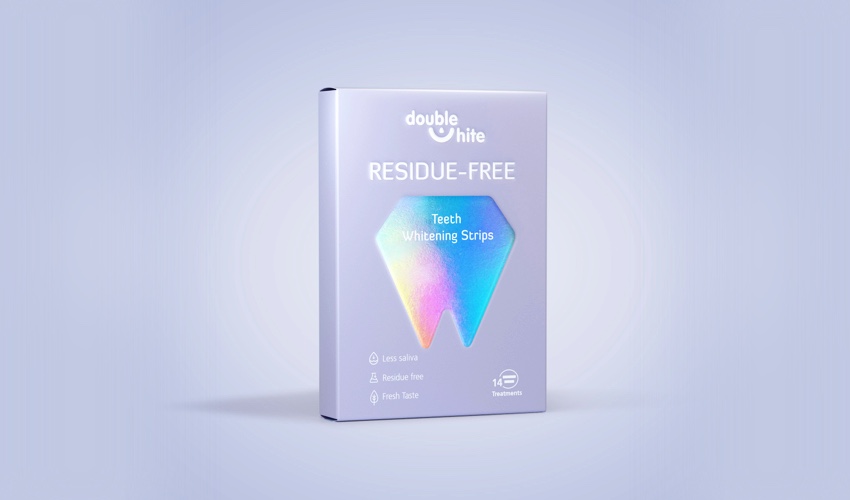
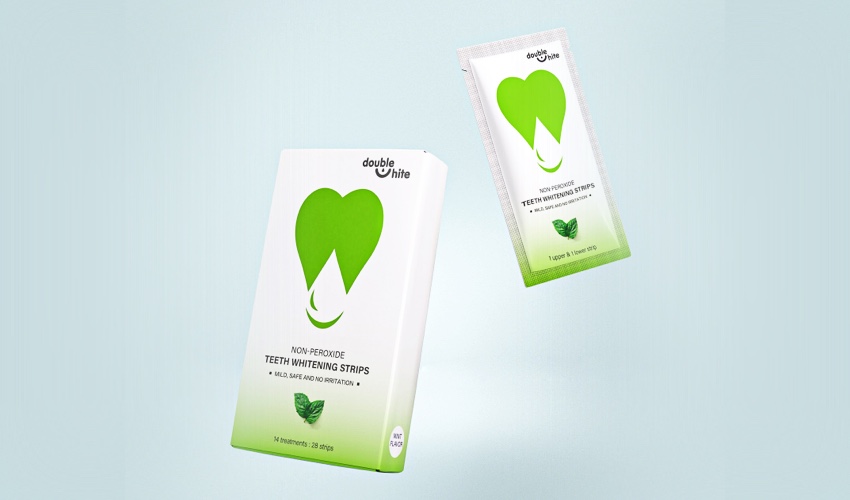
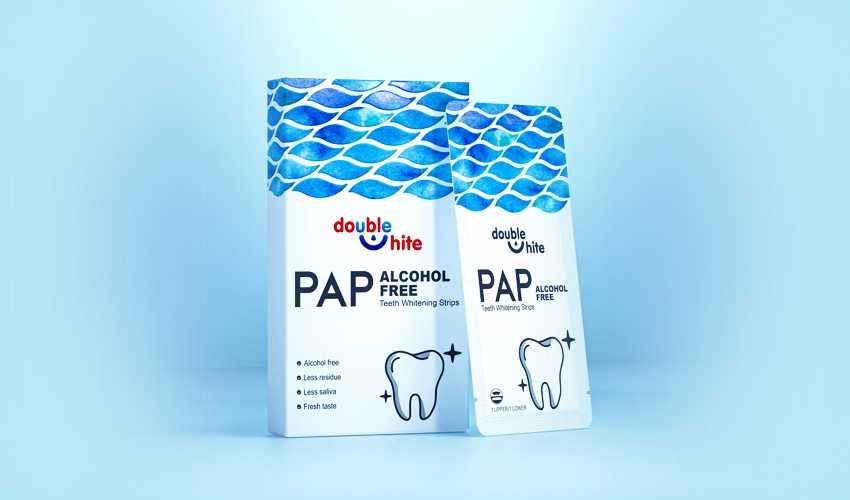
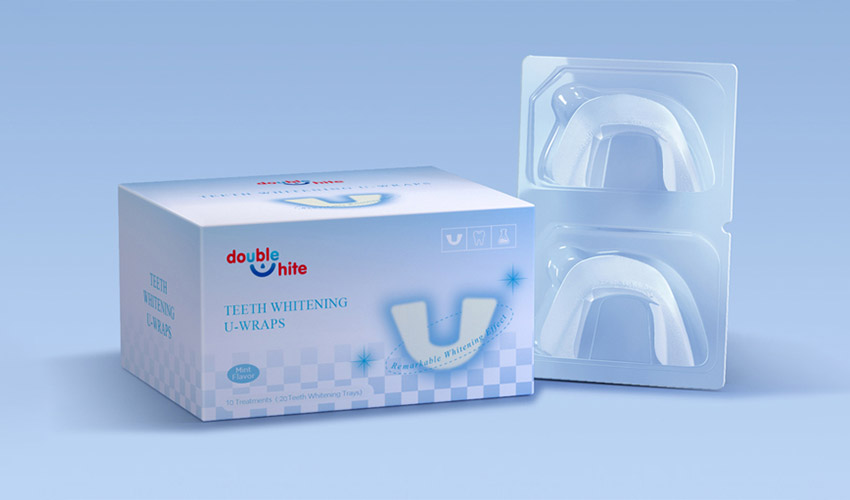
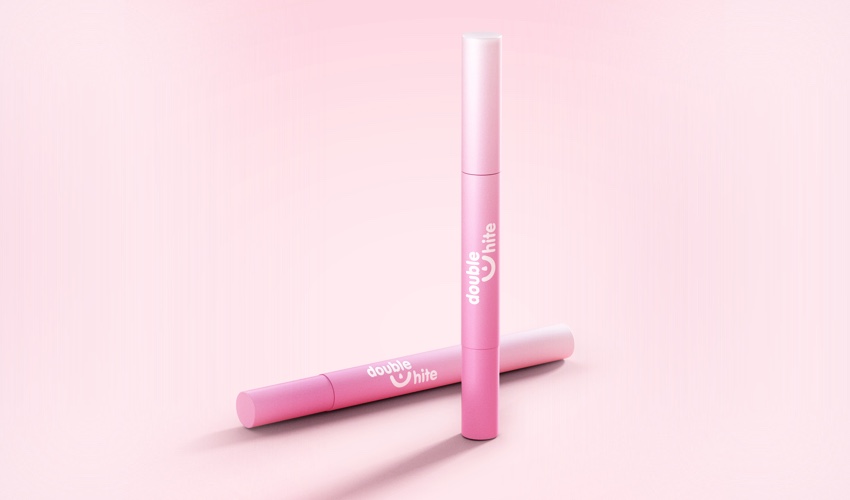
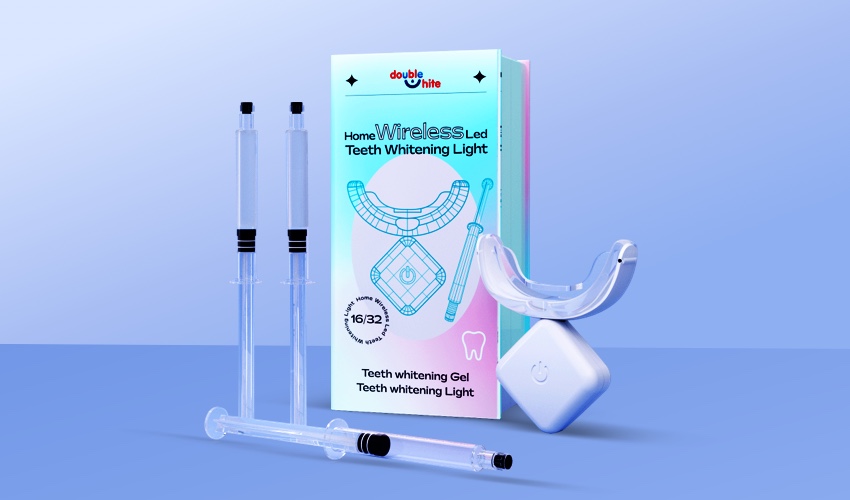
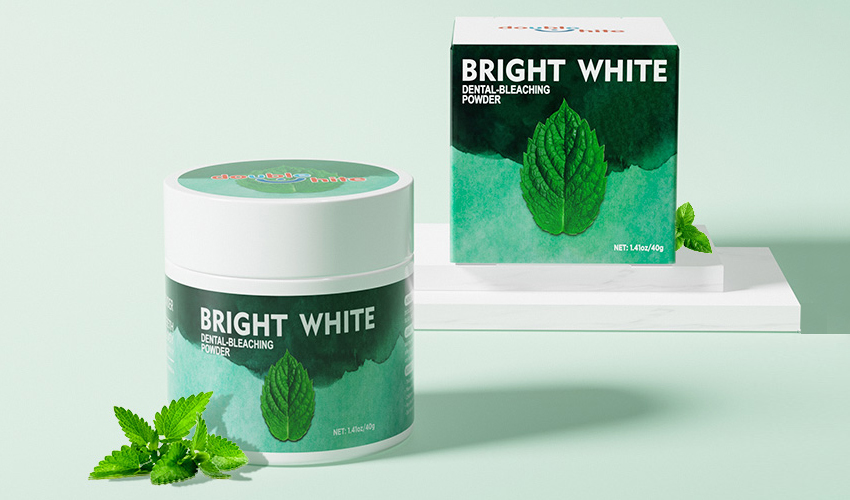






Whatsapp: +8615920313473
cndoublewhite
Doublewhite
doublewhitecn
cndoublewhite
cndoublewhite